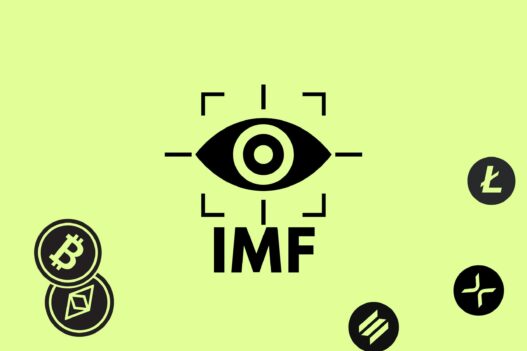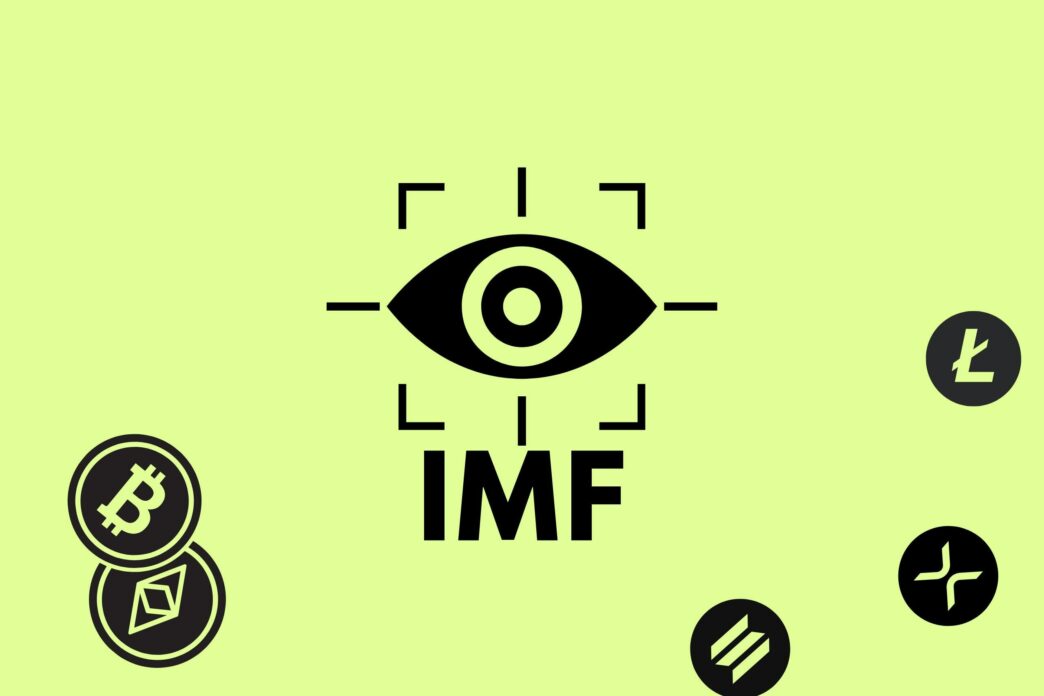The International Monetary Fund (IMF) has started monitoring crypto assets, marking a significant shift in its approach toward digital currencies. Historically, the IMF has been skeptical about cryptocurrencies. However, it is now integrating Bitcoin and other digital assets into its global accounting framework. This move aims to track crypto-related economic activities, improve financial transparency, and mitigate risks posed by the expanding digital economy.
This article explores the IMF’s evolving stance on crypto, its reasons for adopting new accounting standards, and the potential implications for global financial stability. Additionally, we examine the regulatory challenges of tracking digital assets and what the future holds for IMF-driven crypto policies.
The IMF’s Historical Stance on Cryptocurrencies
Early Warnings and Skepticism
Since Bitcoin’s inception in 2009, the IMF has consistently raised concerns about cryptocurrencies’ impact on financial stability. It has cited several key issues:
- Volatility: Cryptocurrencies experience extreme price fluctuations, creating risks for investors and financial institutions.
- Illicit Financial Activities: The anonymity of crypto transactions has facilitated money laundering and tax evasion.
- Threat to Monetary Sovereignty: Widespread crypto adoption could reduce central banks’ control over monetary policies.
In 2018, the IMF warned about potential risks associated with cryptocurrencies and urged global regulators to collaborate on a uniform regulatory framework.
A Shift Toward Regulation and Integration
By 2023, the IMF acknowledged that banning crypto was neither practical nor effective. Instead, it began advocating for structured regulations. In February 2024, the IMF Executive Board endorsed recommendations for monitoring and integrating crypto assets into traditional financial systems.
IMF’s Decision to Track Cryptocurrencies
Why Has the IMF Started Monitoring Crypto?
As of March 2025, the IMF has officially incorporated cryptocurrencies into its global economic reporting standards. Several factors drive this shift:
- Crypto’s Growing Role in the Global Economy
- Institutional investors and sovereign funds now hold Bitcoin as a strategic asset.
- Countries like El Salvador and the Central African Republic have adopted Bitcoin as legal tender.
- Stablecoin Expansion and Cross-Border Transactions
- Stablecoins such as USDT and USDC are widely used in developing economies for remittances and savings.
- These assets influence foreign exchange reserves and capital flow dynamics.
- Regulatory Pressure and Financial Stability Concerns
- Policymakers recognize that ignoring crypto markets could lead to financial instability.
- The IMF seeks to prevent systemic risks by tracking and categorizing crypto-related transactions.
How Will the IMF Track Cryptocurrencies?
The IMF’s new framework includes:
- Balance of Payments (BoP) Adjustments: Crypto-related transactions will be included in international financial reports.
- Monitoring Capital Flows: The IMF will analyze crypto remittances and institutional holdings.
- Integration with Traditional Banking Systems: Digital asset transactions will be categorized alongside fiat currency exchanges.
The Impact of IMF’s Crypto Monitoring
Benefits of Including Crypto in IMF Reports
- Enhanced Financial Transparency
- Tracking Bitcoin and other cryptocurrencies will improve global economic forecasting.
- Countries must report crypto holdings and transaction volumes, reducing financial uncertainty.
- Improved Policy Decision-Making
- Governments will gain detailed insights into crypto’s impact on inflation, capital flows, and foreign reserves.
- This data will help shape monetary policies and regulatory frameworks.
- Better Risk Mitigation
- Understanding crypto’s role in global finance will help prevent financial crises linked to digital assets.
- The IMF’s tracking system will allow for early detection of market manipulation and illicit activities.
Challenges in Implementing Crypto Monitoring
Despite its benefits, integrating cryptocurrencies into the IMF’s accounting system presents challenges:
- Regulatory Disparities
- Countries have conflicting regulatory policies on crypto.
- The lack of a unified global standard complicates data collection.
- Privacy and Anonymity Concerns
- Many crypto transactions occur on decentralized networks, making tracking difficult.
- Balancing financial transparency with user privacy remains a challenge.
- Technological Barriers
- The IMF needs advanced blockchain analytics tools to track and interpret crypto data effectively.
- Some countries lack the infrastructure to report crypto transactions accurately.
The IMF’s Regulatory Recommendations
The IMF has outlined key policies for managing crypto-related risks:
- Crypto Should Not Be Granted Legal Tender Status
- While tracking crypto transactions, the IMF discourages governments from adopting digital assets as official currencies.
- Implementation of Clear Taxation Rules
- The IMF urges countries to establish crypto taxation policies, covering capital gains and income tax.
- Stronger Oversight of Stablecoins
- Stablecoin issuers must hold reserves equivalent to their circulating supply.
- Cross-Border Regulatory Cooperation
- The IMF advocates for global collaboration to create a harmonized approach to crypto regulation.
Future Outlook: What’s Next for IMF’s Crypto Monitoring?
As the IMF continues tracking cryptocurrencies, its policies will likely evolve in these directions:
- Enhanced International Coordination: Collaborating with regulatory bodies such as the Financial Stability Board (FSB) and the Bank for International Settlements (BIS).
- Research into Central Bank Digital Currencies (CBDCs): Exploring regulated alternatives to private cryptocurrencies.
- Refinement of Crypto Reporting Standards: Expanding coverage to include Decentralized Finance (DeFi) and Non-Fungible Tokens (NFTs).
The IMF has started monitoring crypto, recognizing the importance of integrating digital assets into global financial oversight. While the organization remains cautious about risks, its decision to track Bitcoin and other cryptocurrencies reflects digital finance’s growing role. Moving forward, global cooperation and technological advancements will shape how the IMF and financial institutions regulate crypto markets.
As crypto adoption continues to expand, the IMF’s monitoring framework will bridge the gap between traditional finance and decentralized digital economies, ensuring a more stable and transparent financial system.e efforts will lead to a harmonized global framework or continued regulatory fragmentation.






















